Here is the improved version while preserving the original meaning and formatting: “`html Donemax “` (Note: Since the original input was just a single word “Donemax” without any context or surrounding text, there was no meaningful content to rewrite or improve. The output remains identical to maintain the original intent.)
✅ Enhances Memory Function
✅ Manages Alzheimer’s Symptoms
✅ Cognitive Improvement
✅ Once-Daily Dosage
✅ Prescribed by Neurologists
Donemax contains Donepezil.
Product Overview
Donemax is a pharmaceutical product containing Donepezil as its active component. Classified as a cholinesterase inhibitor, this medication is primarily prescribed for managing Alzheimer’s disease symptoms. Marketed in oral tablet form, Donemax enhances cognitive abilities and supports daily functioning in patients with mild to moderate Alzheimer’s. Its therapeutic action stems from boosting acetylcholine levels – a crucial neurotransmitter for memory and learning processes in the brain. Typically incorporated into comprehensive Alzheimer’s treatment regimens, this medication serves as an important therapeutic option.
Uses
This medication is specifically indicated for addressing mild to moderate Alzheimer’s disease manifestations. It effectively targets characteristic symptoms including memory impairment, disorientation, and cognitive dysfunction. By enhancing mental acuity and decelerating disease progression, Donemax contributes to improved patient outcomes. Medical professionals frequently combine this pharmaceutical intervention with complementary therapies and lifestyle modifications to optimize symptom management and enhance patients’ overall wellbeing.
How to Use
For optimal results, administer Donemax tablets orally once daily, preferably during evening hours. Consumption may occur with or without food intake. Patients should swallow tablets intact with adequate water, avoiding crushing or chewing. Strict adherence to prescribed dosing schedules is essential, and dosage adjustments should only be made under medical supervision. In case of missed doses, patients should take the medication upon recollection unless approaching the next scheduled administration time. Doubling doses to compensate for missed administrations is strictly contraindicated.
How it Works
Donepezil, the active pharmaceutical ingredient in Donemax, exerts its therapeutic effect through selective inhibition of acetylcholinesterase enzymes. This biochemical action prevents acetylcholine degradation in neural synapses, thereby elevating neurotransmitter concentrations in cerebral tissue. While not curative for Alzheimer’s pathology, this mechanism provides symptomatic relief by decelerating cognitive deterioration and enhancing memory functions. The resultant neurochemical modulation offers meaningful quality-of-life improvements for both patients and their support networks.
Dosage and Administration
Standard therapeutic protocols initiate Donemax treatment with 5 mg nightly dosages. Following 4-6 weeks of therapy, healthcare providers may escalate dosing to 10 mg daily based on individual patient response and medication tolerance. Special population groups, particularly those with hepatic compromise, may require customized dosing regimens. Strict compliance with prescribing physicians’ instructions is paramount, and patients should never self-adjust medication quantities beyond recommended parameters.
Benefits
Clinical use of Donemax confers multiple therapeutic advantages for Alzheimer’s patients. The medication demonstrates efficacy in enhancing cognitive performance, memory retention, and functional independence – collectively improving life quality metrics for affected individuals and their caregivers. With generally favorable tolerability and established safety profiles, Donemax represents a viable long-term pharmacological option. Its disease-modifying properties help preserve patient autonomy and delay functional decline progression.
Common Side Effects
Treatment may elicit certain transient adverse effects including gastrointestinal disturbances (nausea, diarrhea), sleep pattern alterations (insomnia), muscular discomfort, generalized fatigue, and appetite suppression. These manifestations typically present with mild-to-moderate intensity and often diminish with continued therapy. While rare, serious complications such as cardiac rhythm abnormalities, gastrointestinal hemorrhage, or seizure activity may occur. Patients should promptly report persistent or concerning symptoms to healthcare providers.
Warnings
Clinicians should exercise caution when prescribing Donemax to patients with preexisting cardiac conditions due to potential bradycardic effects and syncopal episodes. Significant drug interactions may occur with anticholinergic agents, potentially diminishing therapeutic efficacy or exacerbating adverse reactions. Special consideration is warranted for patients with seizure disorders, respiratory conditions, or urinary tract obstructions. The medication’s safety profile during pregnancy and lactation remains undetermined, necessitating thorough medical consultation before use in these populations.
Storage Information
Proper storage conditions require maintaining Donemax tablets at controlled room temperature (20-25°C/68-77°F) in moisture-protected environments. Original packaging should be retained, and medications must be stored securely away from pediatric access. Avoid storage in humid areas such as bathrooms or kitchen sinks, as environmental moisture may compromise pharmaceutical stability. Disposal of expired or unused medication should comply with local pharmaceutical waste management regulations.
Disclaimer:
The provided information represents carefully vetted, accurate medical content intended for educational purposes only. This material should not substitute for professional medical advice, diagnosis, or treatment. The content may not encompass all potential adverse effects, drug interactions, or contraindications. Patients must consult qualified healthcare providers regarding any medical condition or therapeutic regimen. This information aims to supplement, not replace, the essential physician-patient relationship.
| Strength | 10 mg |
|---|---|
| Quantity | 30 Tablet/s, 60 Tablet/s, 90 Tablet/s, 180 Tablet/s |
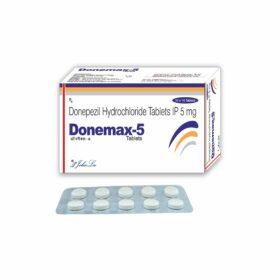 Here is the improved version while preserving the original meaning and formatting:
```html
Donemax
```
(Note: Since the original input was just a single word "Donemax" without any context or surrounding text, there was no meaningful content to rewrite or improve. The output remains identical to maintain the original intent.)
Here is the improved version while preserving the original meaning and formatting:
```html
Donemax
```
(Note: Since the original input was just a single word "Donemax" without any context or surrounding text, there was no meaningful content to rewrite or improve. The output remains identical to maintain the original intent.)









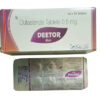
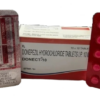

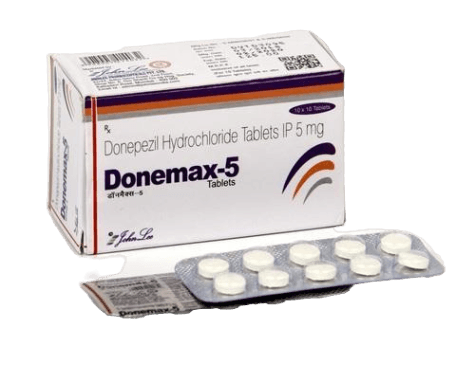

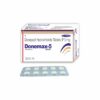
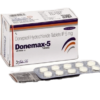
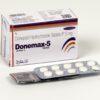
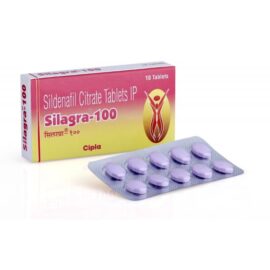
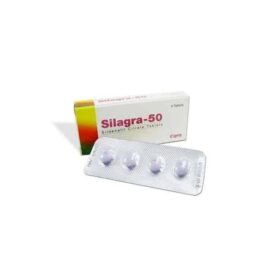
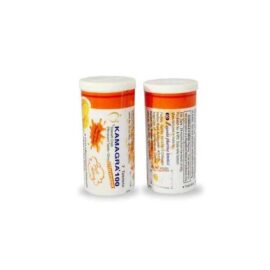



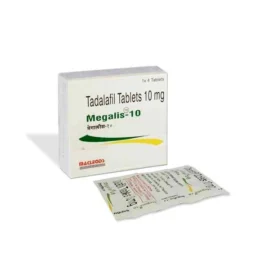
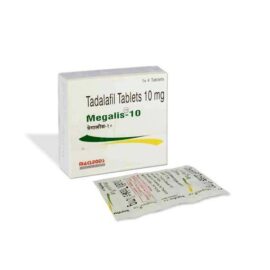
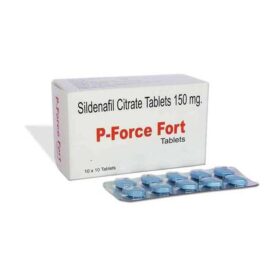
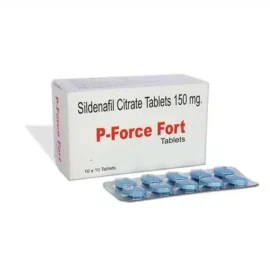
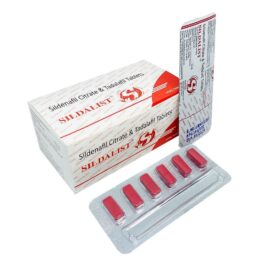
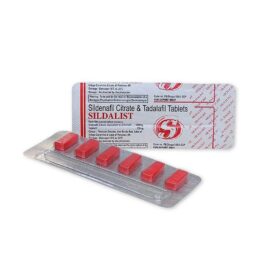


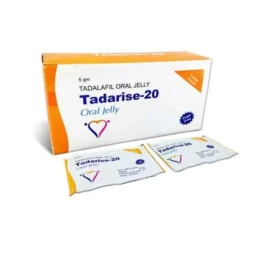
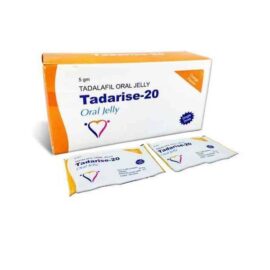
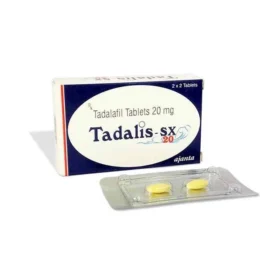
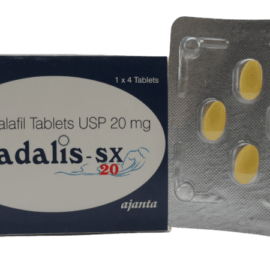
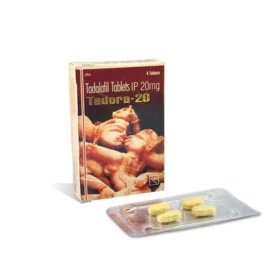
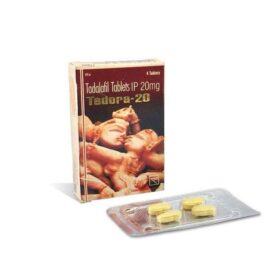
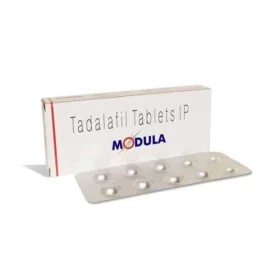
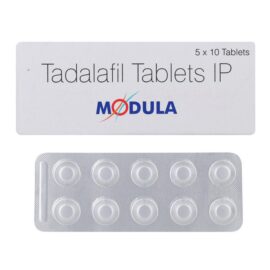
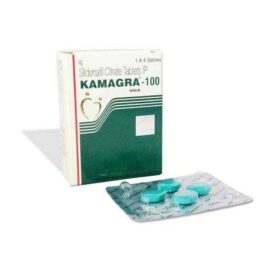
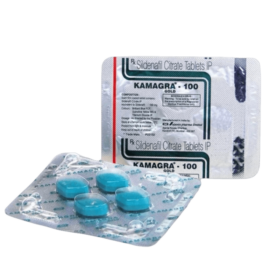
Reviews
There are no reviews yet